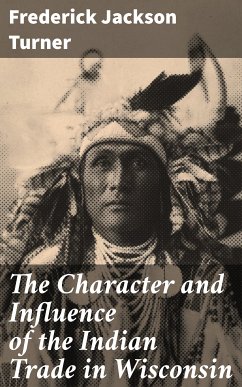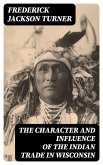In "The Character and Influence of the Indian Trade in Wisconsin," Frederick Jackson Turner explores the intricate dynamics of fur trade and its profound impact on Native American societies and the emerging American frontier. Employing a rigorous historical approach, Turner meticulously examines the interplay of commerce, culture, and conflict, highlighting how trade shaped not only economic systems but also social relationships and cultural exchanges among indigenous tribes and European settlers. His linguistic precision and analytical style contribute to a nuanced understanding of a pivotal epoch in American history, inviting readers to consider the broader implications of trade on the development of national identity and policies. Frederick Jackson Turner, a prominent historian known for his frontier thesis, brought a unique perspective to his analyses of American history, underscoring the importance of westward expansion. His extensive research in the early 20th century, coupled with his fascination for the interplay between cultures in transformative environments, has broader implications that resonate throughout many of his works. By investigating the Indian trade, Turner reveals the complex layers of American heritage shaped by economic necessity and cultural interaction. This book is highly recommended for scholars, students, and anyone interested in the multifaceted interactions between Native Americans and European settlers. Turner's insightful narrative and groundbreaking interpretations provide a foundational understanding of American history through the lens of trade, making it essential reading for those wishing to grasp the full scope of historical influence in Wisconsin and beyond.
Dieser Download kann aus rechtlichen Gründen nur mit Rechnungsadresse in A, B, BG, CY, CZ, D, DK, EW, E, FIN, F, GR, H, IRL, I, LT, L, LR, M, NL, PL, P, R, S, SLO, SK ausgeliefert werden.









